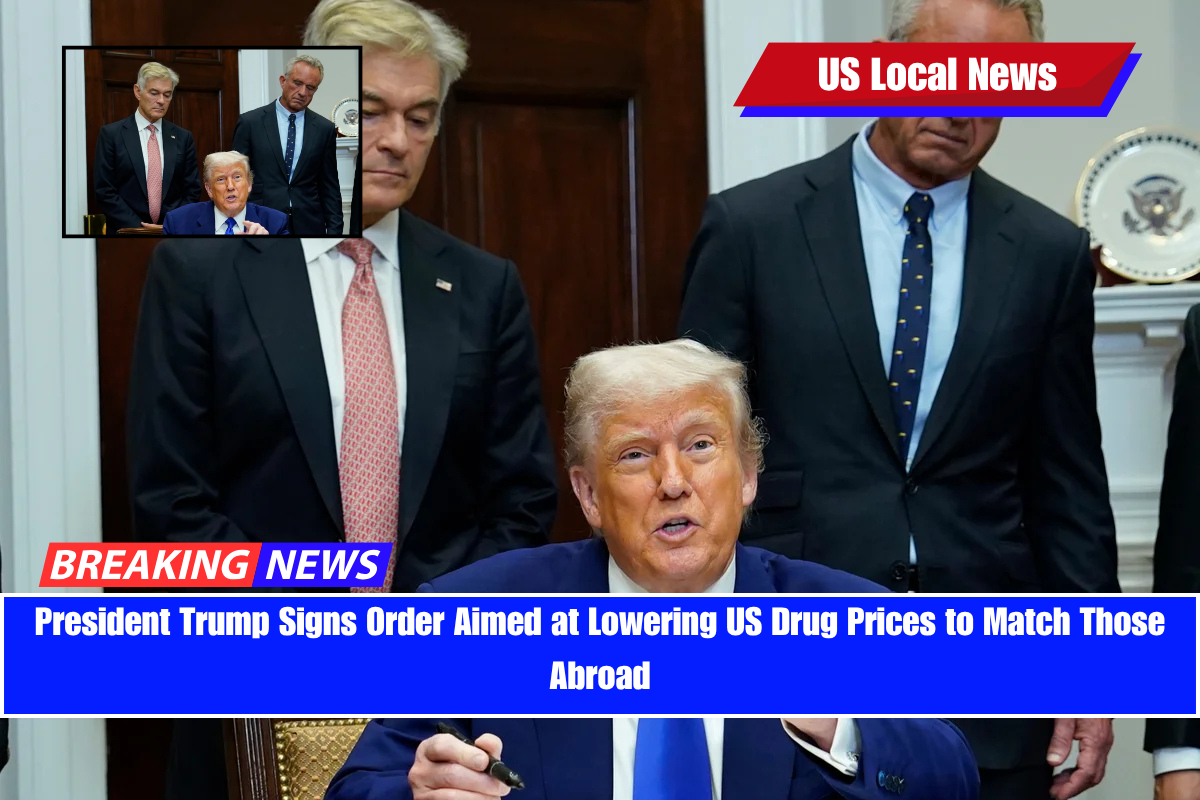Washington, D.C. – In a bold move to tackle the skyrocketing cost of medicines in the United States, President Donald Trump has announced a new drug pricing strategy that he says will cut prices for American consumers by 30% to 80%.
Calling the current pricing model a “global redistribution scam,” Trump accused pharmaceutical companies of overcharging U.S. patients while selling the same medicines at far lower prices abroad. He signed an executive order on Monday aimed at putting an end to this system.
What’s the New Policy?
The policy is known as the “Most Favored Nation” pricing model, and it demands that drug companies charge Americans no more than they charge in other countries. Simply put, the U.S. will pay the lowest price available globally for certain prescription drugs.
Speaking at the White House, Trump stood with Health Secretary Robert F. Kennedy Jr. and Medicare and Medicaid Services head Mehmet Oz, saying,
“We’re done paying ten times more than another country.”
Example Price Gaps
President Trump gave some examples to show the wide price difference:
- A breast cancer drug costs $16,000 in the U.S., but only $1,600 in Australia
- The popular weight-loss drug Ozempic is 10 times more expensive in the U.S. than in other countries
Trump said his order would “end systematic overcharging” and finally “level the global pharmaceutical playing field.”
Support from Unexpected Corners
Health Secretary Robert Kennedy Jr. said even his own Democrat-supporting children were surprised and happy to see this move.
“They thought this would never happen in their lifetime,” Kennedy shared during the press conference.
While Trump’s policy may face legal hurdles, it has earned praise from health policy experts who believe pharmaceutical companies should not charge Americans more than they charge other countries.
Pharma Industry Pushback
The pharmaceutical industry, however, strongly opposes the plan. Industry leaders claim that forcing price reductions could lead to limited access to life-saving treatments for Medicare patients.
A drug executive even told the media the policy is an “existential threat” to U.S. pharmaceutical innovation and could hurt research and development.
Previously, the Trump administration tried to pass a similar plan in late 2020, but it was blocked by a federal judge who said the administration had not followed the required public notice process. The Biden administration later cancelled it.
Global Market Reaction
News of the announcement shook global pharmaceutical markets. European and Asian drug stocks fell early Monday but recovered by market close. In the UK, AstraZeneca ended up 0.3% and GSK rose 1.6%. Surprisingly, U.S. drugmaker stocks closed higher due to positive news on U.S.-China trade relations.
Why Do Other Countries Pay Less?
According to a Rand Corporation report, the U.S. paid nearly three times more for brand-name drugs in 2022 compared to other developed countries.
The reason? Other countries negotiate prices directly with drugmakers as part of their universal healthcare systems. This gives them strong bargaining power, something the U.S. currently lacks.
Pharmaceutical companies often argue that higher U.S. prices support innovation. Trump rejected this claim, calling it a “long-running con.”











Leave a Reply